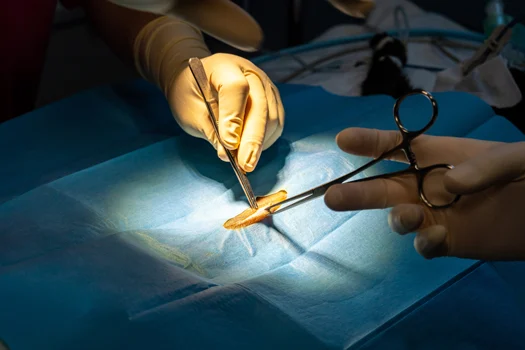Proper care after Mohs surgery helps support healing and minimizes discomfort during the recovery process. Patients should follow their doctor’s instructions closely to ensure the best possible outcome. This guide provides clear steps and practical advice for managing the healing period.
Cleaning and Dressing Changes
Gentle cleaning of the wound is part of the recovery process. Use a mild, fragrance-free soap and lukewarm water to rinse the area. After cleaning, pat the wound dry with a clean towel, avoiding any rubbing or scrubbing. Dressing changes may follow your doctor’s advice, typically requiring a clean and sterile bandage. Here’s how to protect it from dirt and bacteria:
- Wash your hands thoroughly before touching the wound.
- Carefully remove the old dressing, avoiding pulling or tugging at the skin.
- Clean the wound as directed and allow it to air dry for a few minutes.
- Apply a thin layer of any prescribed ointment or petroleum jelly to keep the area moisturized.
- Use a clean bandage to cover the area again.
Repeat this process daily or as instructed by your healthcare provider.
Managing Discomfort
Mild pain or tenderness around the wound may occur after surgery. Over-the-counter pain relievers, such as ibuprofen or acetaminophen, are often helpful for addressing discomfort. Resting and avoiding activities that put strain on the area also support the healing process.
Moisturizing to Reduce Scarring and Sun Protection
Scarring is a natural part of the recovery process, and moisturizing the affected area can help manage its appearance over time. Products like petroleum jelly or wound care ointments often keep the healing area hydrated. This prevents it from drying out and reduces tightness around new skin.
Sun exposure increases the risk of discoloration or irritation to the healing skin. Cover the area with a broad-brimmed hat, loose clothing, or a non-irritating physical sunscreen when outdoors. Avoid prolonged sun exposure, especially between late morning and early afternoon when UV rays are more intense.
Attending Follow-Up Appointments
Healing after Mohs surgery is a process that typically benefits from professional follow-up care. Scheduled appointments allow your care team to monitor your progress and address any questions or concerns. Attend all postoperative visits to receive personalized guidance tailored to your healing process.
Maintaining Comfort and Recovery
- Take it easy! Overexertion might delay healing or cause irritation. Try to rest as much as possible in the first few days.
- Stick to the instructions provided by your healthcare provider and use only the recommended products on the wound.
- If your bandage becomes wet or dirty, replace it with a clean one to lower the chance of infection.
A smooth recovery involves patience and careful attention to the area being treated. Focus on these steps to promote steady healing and feel assured that you’re taking care of yourself.
Get Follow-Up Care After Mohs Surgery
Keep following these strategies, and enjoy the progress your body makes each day. To ensure optimal healing and address any concerns, schedule a follow-up appointment with your surgeon. Reach out to your healthcare provider today to set up a time and receive personalized support for your recovery.
- Zirconia Cap Price: Estimated Cost & Its Long-Term Benefits
- FREHF – The Revolutionary Future Of Human-Centered Technology!
- Adsy.Pw/Hb3 – Boost Your SEO And Drive More Traffic!
- Fitness Based Vacations By Timeshealthmage.com!
- TimesHealthMag Tips For Improving Sleep Quality – Expert Advice For Better Rest!


Leave a Reply